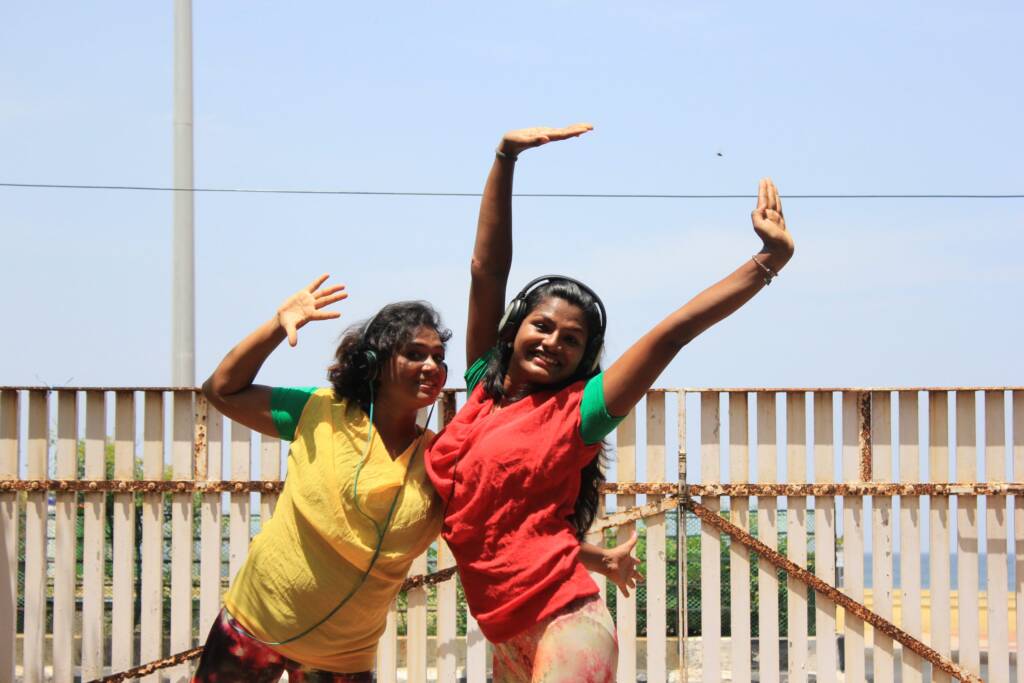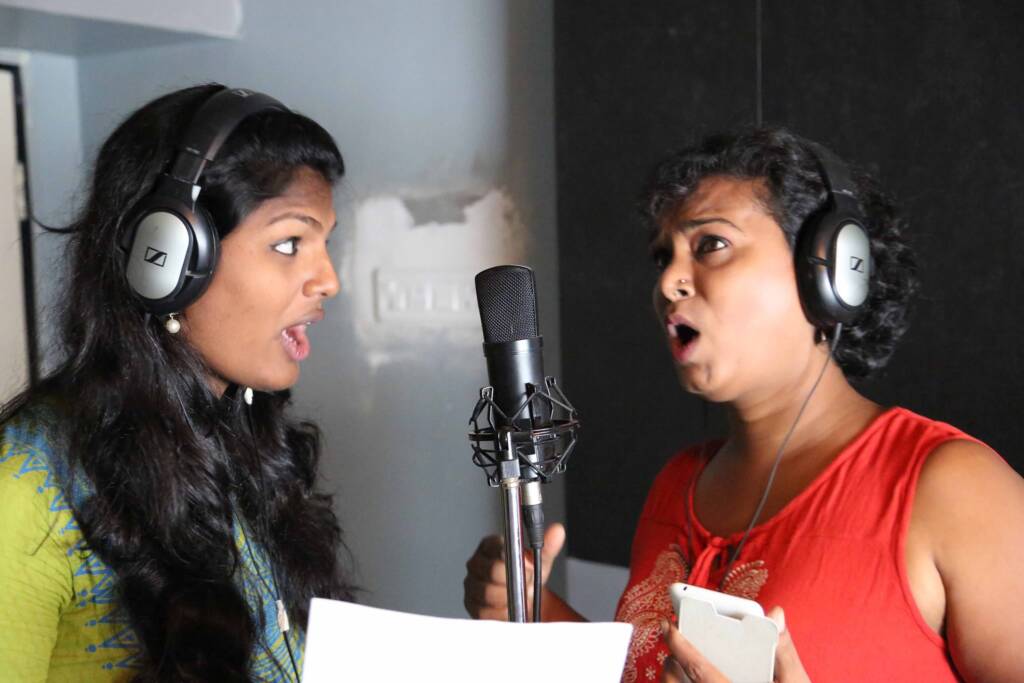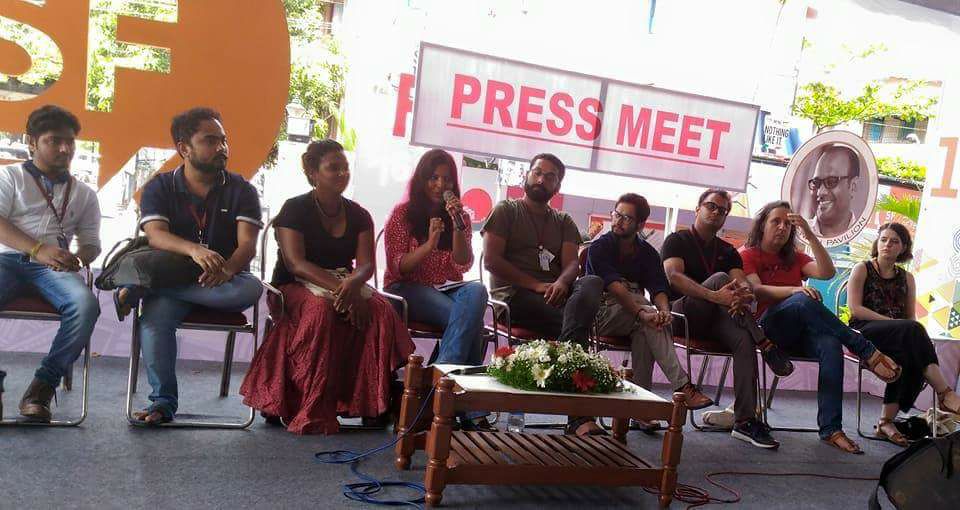All over the Board
AUGUST 14, 2017 13:51 IST
UPDATED: AUGUST 14, 2017 15:38 IST
Link: http://www.thehindu.com/entertainment/art/all-over-the-board/article19490606.ece
Leena Manimekalai
Film under CBFC ire: Is It Too Much To Ask

My latest documentary is about two transwomen friends trying to find an apartment in Chennai to rent. When I applied for CBFC certification, the Regional Officer in the Chennai office questioned me about showing the film to children, as the lead characters were neither men nor women! He certified it “A”. My feature Sengadal, The Dead Sea was banned, because they claimed it would affect “bilateral relations between India and Sri Lanka.”
When I initially made films on caste and gender violence, my work was constantly turned down as the Censor Board feared that it would spark off riots.But the officers never knew that I had screened them across hundreds of villages and towns. In all these places, the films only created a discourse and not
வீடு வாடகைக்குக் கிடைக்குமா? – சமூக ஆதிக்கத்தை அழித்தொழிக்கும் ஆவணப்படம்! #Is lt Too Much to Ask ?
– ர.முகமது இல்யாஸ் 01/08/2017
இந்திய சினிமாவில் `புனைவு ஆவணப்படங்கள்’ (Docufiction) என்ற வகை திரைப்படங்கள் மிக அரியவை. வணிக நோக்கத்துடன் திரைப்படங்கள் உருவாக்கப்படும் இந்தியா போன்ற நாட்டில், புனைவு ஆவணப்படங்களைத் திரையில் எதிர்பார்க்க முடியாது. ஆவணப்படம் என்பது, உண்மைச் சம்பவத்தை அல்லது மனிதரைப் பற்றிப் பதிவுசெய்வது. அதில் உண்மை மட்டுமே பதிவுசெய்யப்பட்டிருக்கும். அப்படிப்பட்ட ஆவணப்படங்களில் ஏதேனும் சம்பவங்களைப் புனைந்து இயக்கப்படுவது புனைவு ஆவணப்படங்களில் வரும்.
ஸ்மைலியும் (லிவிங் ஸ்மைல் வித்யா), கிளாடியும் நாடகக் கலைஞர்கள். இருவரும் இணைந்து வாழ்ந்துவரும் வீட்டில், அவர்கள் `திருநங்கை’கள் என அவர்களின் வீட்டு உரிமையாளருக்குத் தெரியவருகிறது. வீட்டைக் காலிசெய்யச் சொல்கிறார். அதற்காக மிகக் குறுகிய கால அவகாசத்தையும் தருகிறார். ஸ்மைலியும் கிளாடியும் சென்னை மாநகரில் வீடு தேடுகிறார்கள். இப்படியான கதை ஓட்டத்துடன் பயணிக்கிறது `இஸ் இட் டூ மச் டு ஆஸ்க்?’ (Is It Too Much to Ask?) என்கிற புனைவு ஆவணப்படம்.
சென்னை மாற்றுப் பாலின, மாற்றுப் பாலீர்ப்புத் திரைப்பட விழாவின் முதல் திரைப்படமாக இது திரையிடப்பட்டது. 30 நிமிடத்தைக் கால அளவாகக்கொண்டிருந்த இந்த புனைவு ஆவணப்படத்தைத் தயாரித்து, இயக்கியவர் பிரபல கவிஞரும், ஆவணப்பட இயக்குநருமான லீனா மணிமேகலை. ஒரு மனிதனின் அடிப்படை தேவைகள் உணவு, உடை மற்றும் இருப்பிடம். இந்தியாவில் இந்த மூன்று அடிப்படை தேவைகளிலும் சாதியும் ஆணாதிக்கமும் தங்கள் இருப்பை நிலைநிறுத்தியுள்ளன. இந்தப் பாகுபாடுகள், கிராமங்களில் மட்டுமல்ல… நகரங்களிலும் எந்த வகையான வித்தியாசமுமின்றி இருக்கவே செய்கின்றன.
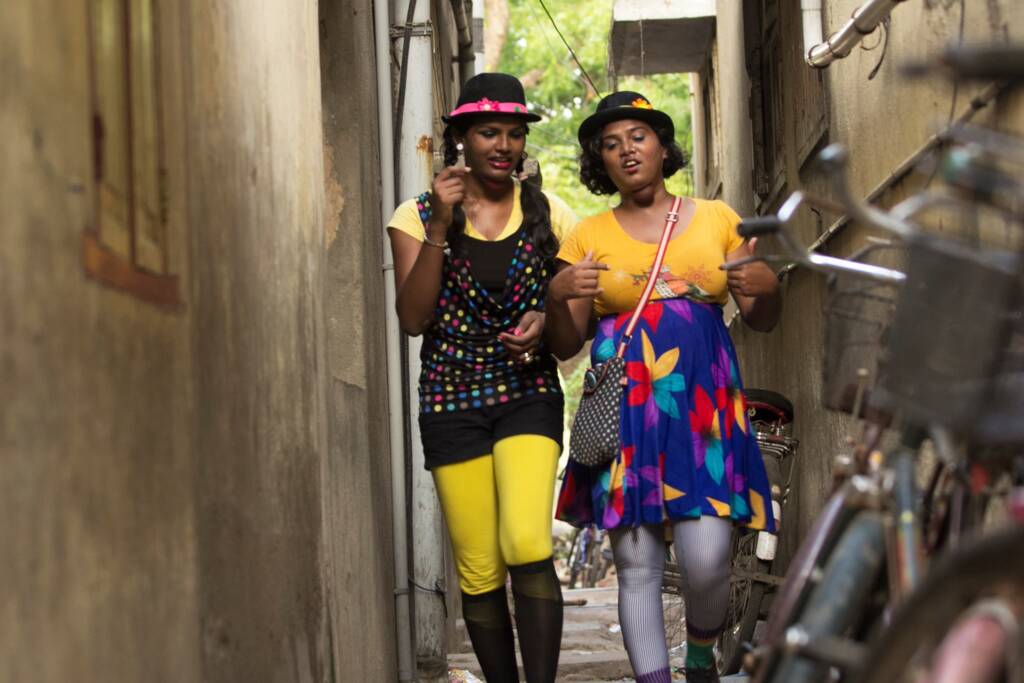
சமீபத்தில் கவிஞர் மனுஷ்ய புத்திரன் `தான் பிறப்பால் முஸ்லிம் என்பதால், தனக்கு வீடு வாடகைக்கு விட மறுக்கப்படுகிறது’ என்று பகிரங்கமாக அறிவித்திருந்தார். ஒவ்வொரு நாளும் தொலைக்காட்சி நிகழ்ச்சிகளில் தோன்றி, பொதுப்பெயருடன் இயங்கும் மனுஷ்ய புத்திரன் மீது பாரபட்சமின்றி பாகுபாடு காட்டப்படுகிறது என்றால், சமூகத்தில் பெரிதும் அறிமுகம் இல்லாத ஸ்மைலியும் கிளாடியும் எங்கே செல்வார்கள்?
இந்த ஆவணப்படத்தின் தொடக்கத்தில், இரு திருநங்கையரும் அவர்கள் வாழப்போகும் வீட்டைப் பற்றி பெரும் கனவுகளுடன் இருப்பார்கள். ஒவ்வொரு வீட்டிலும் அதன் உரிமையாளர்கள் பல காரணங்கள் கூறி, அவர்களுக்கு வீடு தராமல் மறுப்பு தெரிவிப்பர். `சைவ உணவு உண்பவர்களுக்கு மட்டும்தான் வீடு தருவோம்’, `ஃபேமிலி ஒன்லி’, `ஐ.டி நிறுவனப் பணியாளர்களுக்கு மட்டும்’ என்பது போன்ற காரணங்கள். ஒவ்வொரு வீடும் மறுக்கப்பட, ஸ்மைலிக்கும் கிளாடிக்கும் கனவுகள் தகர்ந்து போகின்றன.
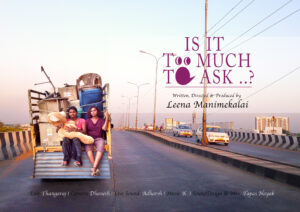
https://youtu.be/C0DM1BVx5BU?si=_6LVNw_n7zI0iB47
இந்த ஆவணப்படத்தின் சிறப்பே, பிரசாரம் செய்யும் தொனியில் அல்லாமல், ஸ்மைலியுடனும் கிளாடியுடன் பயணித்து, நிஜ மனிதர்கள், இரண்டு திருநங்கைகளுக்கு வீடு வாடகைக்கு அளிப்பதை மறுப்பதைத் தெளிவாகப் பதிவுசெய்தது. மேலும், லீனா மணிமேகலையின் கதாபாத்திரங்கள் ஸ்மைலியும் கிளாடியும் தங்கள் சோகங்களை, கலை மூலம் வெளிப்படுத்தி சமூகத்திடம் பிரதிபலிப்பவர்களாக இருக்கின்றனர்.
வீடுகளை வாடகைக்கு விடுபவர்கள், தங்கள் வீடுகளில் குடியிருப்பவர்களின் அடையாளத்தைப் பிரதானமாகக் கருதுவதைப் பகடிசெய்து, ஸ்மைலியும் கிளாடியும் நாடகம் நடிக்கின்றனர்; ராப் பாடல் பாடுகிறார்கள்.
ஸ்மைலியும் கிளாடியும் அனைத்து திருநங்கைகளின் சார்பாக என்ன கேட்கிறார்கள்? தங்குவதற்கு வீடும், சக மனிதன் என்ற அங்கீகாரமும்தானே?
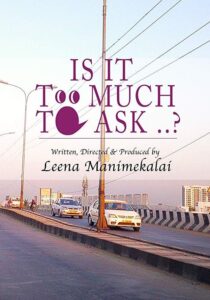
https://youtu.be/WT7lYw6igJA?si=suC15qL2hCwE91VU
Is it too much to ask?
Mission impossible: Two transgender women on house hunting
| Published: 22nd June 2017 07:00 PM
Two talented actors with illustrious, decade-long careers. Yet, when it comes to finding a place to live, Living Smile Vidya and Angel Gladdy don’t seem to get a break. Apart from all that they have managed to achieve which includes stellar collaborations with international theatre groups, to the society, they are nothing but transgender women who are to be kept arm’s length. As their latest project, a documentary by critically acclaimed director Leena Manimekalai titled ‘Is It Too Much to Ask’ gets screened at IDSFFK, we managed to catch up with the duo.Though its focus remains in chronicling the hardships of two single transgender women as they look for a rental apartment within Chennai, the film doesn’t resort to a bleak, sentimental approach. Unlike the sad characters we are used to seeing on screen, Leena’s protagonists are vibrant beings who refuse to back down. They rap, dance, lapse into occasional laments about society’s unfairness and resume their lives, only to continue searching for a roof over their head.
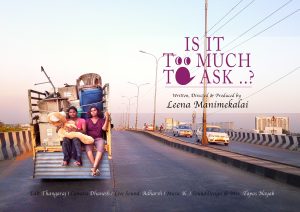 Keeping the dream alive
Keeping the dream alive
“I have done few short films and documentaries, but nothing like this.‘Is it too much to ask’ is the first project where I actually sang a song,” says Angel Gladdy who has previously been part of projects like Beyond Binary, an Indo-Korean play.Composed as an ongoing conversation between the duo with occasional meetups involving hateful house owners, the 30-minute long production is largely about the dreams that the artistes harbour about their future home. From modular kitchens to terracotta artworks, the imageries fill the script only to be dissed by comments like “We can’t allow non-Brahmins in our house!”.“This film is our life itself,” shares Living Smile Vidya, as she recounts the past year where she had to relocate thrice. Citing the long list of rules that she is supposed to abide by, the artiste says that the treatment can only be considered as less than humane. “I want to be like you. To be respected a normal human being with a life, more importantly, a place to call home,” concludes Vidya.
Watch the trailer here.https://vimeo.com/179871134
Pic credit:facebook.com/IsItTooMuchToAsk/
Indian Premiere of “Is it too much at ask” at IDSFFK, Trivandrum
Official Competition
20th June, 9.30 am, Official Competition Screening, Kairali Theatre.

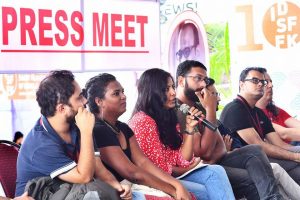
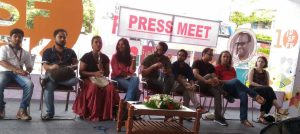
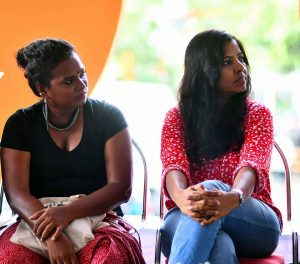

Festival Censorship is Quite Dangerous, Fascist In Motives: Leena Manimekalai
While interacting with News18.com, Leena maintained that she stands in solidarity with the three banned films and filmmakers.
Kriti Tulsiani | News18.com@sleepingpsyche2
Updated:June 14, 2017, 12:53 PM IST
A battle that filmmakers have been fighting and unfortunately, will continue to fight, is the one with the censor board. While it’s a mandate for Bollywood directors to get CBFC’s nod and certification before the film’s release, the films screened at festivals do not necessarily require a censor certificate, but a censor exemption from the Union Ministry for them to be screened.
In what has cast a cloud over the 10th edition of the International Documentary and Short Film Festival of Kerela (IDSFFK), the Ministry of Information and Broadcasting has denied censor exemption to three documentary films broadly dealing with Jawaharlal Nehru University protests, the Rohith Vemula incident and on the unrest in Kashmir, without citing a specific reason.
Filmmaker Leena Manimekalai, whose documentary Is It Too Much To Ask will be running in the official competition at the forthcoming film festival, took to Facebook to announce that 160 filmmakers, artists, and academics have written to Mr Venkaiah Naidu, Minister of Information and Broadcasting, urging him to “stop its censorship regime and immediately provide exemption to the films they have prevented from being screened” at the festival.
Questioning the basis for denying screening permission to these films, they’ve also highlighted that each of these films deals with “prominent political issues that have led to much discussion within the country” in the letter addressed to Naidu.
“It is also clear that the government of the day is resorting to draconian action to stifle all such political debate and indeed Article 19 of our constitution, which guarantees the right to freedom of expression to every citizen of this country,” read the letter.
While interacting with News18.com, Leena maintained that she stands in solidarity with the three banned films and filmmakers.
“This whole pattern of festival censorship is quite dangerous and fascist in motives. We’ve sent the collective statement and we’ll have to wait and see,” she said.
When asked if this kind of censorship poses a threat to quality cinema, she said, “Censorship is always a threat to sensible cinema. CBFC has to be trashed and this extra-constitutional censorship has to be resisted by all means. Else what is the meaning of democracy.”
Considering that CBFC chairperson, Pahlaj Nihalani, recently warned filmmakers of the strictest action to be taken against them – if they continue to take their films to International film festivals without censor board certification, this move has further set the alarm bells ringing.
“This Modi govt decides what to eat, what to watch, what to wear and what to speak. This Pahlaj Nihalani should go back to school and learn how the international cultural scene works. He is an embarrassment to even deal with,” she said.
“No international film festival bothers about a censor certificate,” she added.
PN Ramachandra’s The Unbearable Being Of Lightness, NC Fazil and Shawn Sebastian’s In The Shade of Fallen Chinar and Kathu Lukose’s March March March are the three documentaries to have invited the wrath of the central government this time.
Whether it’s a depiction of a trouble-torn Kashmir or a narration of the students protest at JNU and its aftermath or a tale ‘too women oriented’ – the decision to ban art, in the name of censorship, requires a serious justification so that it just doesn’t end up being a bane of the lives and minds of filmmakers across the country.

